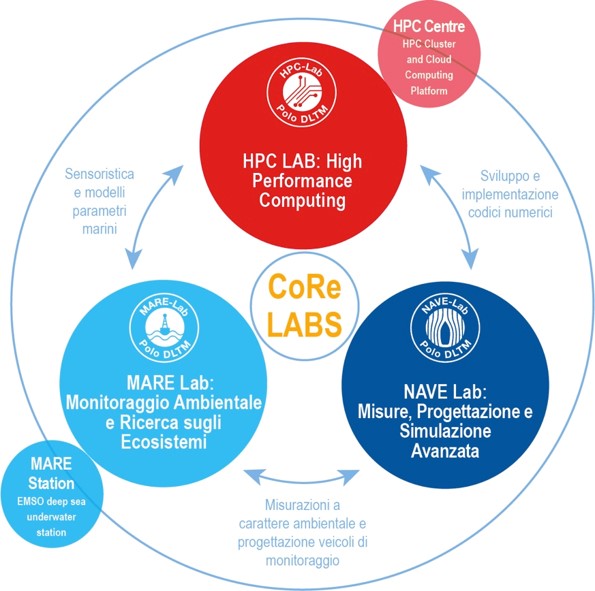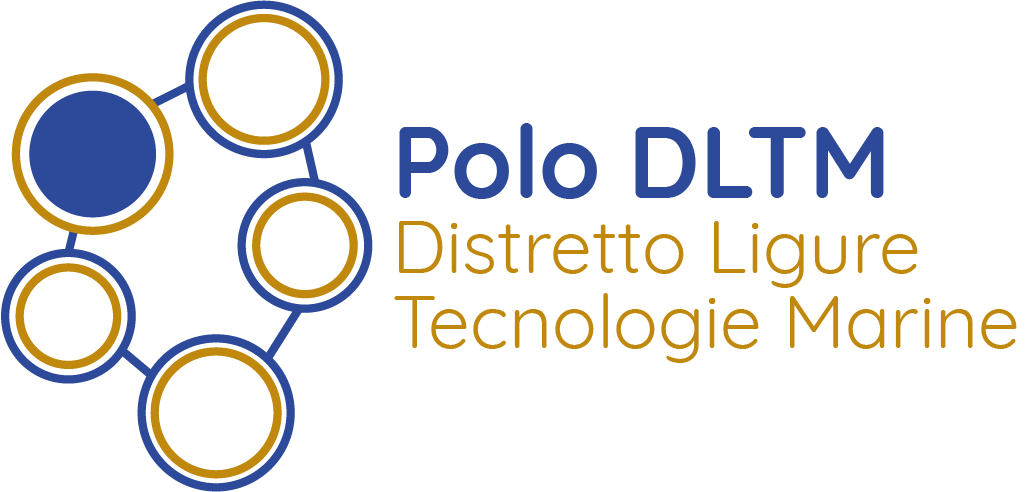Supporting cooperative planning of R&S and Training
The objective of this activity is to create an original process for encouraging collaboration between businesses, universities and centres of research, in order to consolidate relational networks. This line of activity responds to the aim of supporting the territory and enhancing its innovative potential, also with regard to the improved uptake of state support.
In this context, Polo DLTM supports associates participating in national and European tenders for financing activities in research, experimental development or training, supplying:
- Information about the principal opportunities involved and relating to the participating conditions;
- Assisting in the creation of the necessary links to the participation of the project, facilitating meetings between business associates which have complimentary activities, as well as providing contacts with the international partners of Polo;
- Support in establishing the proposed idea and in the preparation of the necessary forms concerning participation in tenders;
- Managing the project during its creation (Project management and reports);
- Interaction, on behalf of participating partners, with the assessing institutions, as well as, continuous monitoring during the course of the entire project.
Membership of Polo DLTM guarantees the opportunity to access finance supplied by 'Regione Liguria'.
Innovation Bureau
The innovation bureau provides a package of services to SMEs, aimed primarily at improving access to funding opportunities at national and Community level, with particular reference to the new Horizon 2020 framework programme. It does this using call scouting, local partnerships, business matching, and support for internationalisation.
It also matches member companies' demand for innovation to the supply of innovative services from a network of cooperative laboratories associated with the centre. This consists of CoRe Labs in particular, and also includes time-based access to high-performance software as a service, available on HPC cloud technology.
DLTM can also make staff available to help businesses prepare and submit project tenders at national and Community level, and to manage and report on approved projects in progress.
At the technical level, the centre offers a regulatory support service to enable businesses, especially SMEs, to access the complex corpus of naval and nautical legislation. This provides companies with initial support in researching and verifying the design rules applying to ship components and fittings. These are subject to stringent regulatory requirements that are often difficult to identify and interpret.
International School
This initiative was the result of reflection on the mission of the district that manages the DLTM, in the field of training and on the role of catalyst and facilitator. It aims to create a framework of collaboration in which participants share their knowledge in joint training projects.
The International School of Marine Technology, in conformity with the European policy of smart specialisation and clustering of resources, seeks to bring together three environments that are usually weakly correlated, manufacturing, education/training and research in order to:
- Promote comprehensive and effective training with the support of research institutions and industry, bringing together the needs of industry and the drivers of research. This creates a structured and organised network of skills.
- Be a point of reference for the sector as a link between suppliers of education/training and the world of production, acting as a catalyst of supply and demand
- Serve as a reference point by providing 360-degree training for students, graduates and companies.
ACTIONS AND TARGETS
The school will operate on two levels:
- National/regional
- International
The school will serve undergraduates, graduates, doctoral students, employees of member companies, and students of secondary schools.
It will offer a range of services:
- Annual seminar programmes in cooperation with universities, research bodies, and companies
- International seminars
- Advanced training (masters, specialist courses, research grants, doctorates, advanced apprenticeships, summer and winter schools) requested by DLTM members and in collaboration with leading partners and consultants
- Training activities involving international exchanges (research grants, Erasmus for entrepreneurs, visiting professors, internships etc)
- Technical and corporate training (also available on request)
- Theoretical and practical training with the cooperation of companies, including seminars, presentations, and business visits
- Innovative information sessions for secondary-school students with the support of teachers, EPRs, firms and universities, to promote public awareness of the scientific professions in general and the marine sector in particular
- Promotion of business internships in Italy and abroad
- Consultancy for secondary schools to promote sandwich courses for DLTM members
- Matching demand and supply to facilitate placements (thesis database, career days etc.) in close cooperation with members
- Intermediation and counselling for internships and placements
- Specific interventions in the field of adult education
The targets of these programmes will be
- University students and graduates: complementing institutional education with more job-oriented skills
- Companies: upgrading existing professional profiles, and training for new ones in light of the upgrading of human capital and increasing innovation. This allows businesses to position themselves more competitively in dealings with emerging markets, and to monitor technological trends and design programmes that encourage growth, innovation and business-oriented synergies between economic actors
- Secondary schools: increase young people's awareness of the scientific professions in general and the marine sector in particular. This is done using internships and alternating school and work. It involves schools, companies and research institutes presenting possible career alternatives, and consists of training rather than traditional counselling.
PARTNERSHIP
Since one of the main reasons for the school's creation is to bring together universities, public research and educational bodies, it will be open to public and/or private entities in Italy or abroad.
In the context of its international scope, cooperation with universities and research institutes outside Italy is vital. We have initiated contacts with manufacturers, academics, and the research world. The following have already expressed interest:
- Cranfield University
- Istituto Nazionale di Geofisica e Vulcanologia
- Univ. of Liege
- Univ. of Newcastle upon Tyne
- Orizzonte Formazione
- Univ. Parthenope NA
- Univ. Genova
- Fondazione Promostudi La Spezia
- West Pomeranian University of Technology Szczecin
- Univ. of Rostock
- Ecole Centrale Nantes
- ASTER s.p.a. Technology & Engineering
- NAVIGO scarl
- Azimut-Benetti Spa
- Yildiz Technical University
- Expertise S.r.l.
- Antbox ltd
- DLTM
Cooperative Research Labs (CoRe Labs)
Following the members' need for continual innovation, Polo has set up three thematic cooperative laboratories, where scientific and industrial researchers meet and exchange ideas (Open Innovation). Furthermore, these laboratories develop specialised post graduate courses. These 3 laboratories are:
- HPC Laboratory: High Performance Computing
- SHIP Laboratory: Naval Measurements, Projects and Simulations
- SEA Laboratory: Environmental monitoring and ecosystem research
The 'Distretto' members, businesses, universities and research institutes, co-operate with the three laboratories. These laboratories, having a close link between their research objectives forming a united ecosystem.

Fig. 1: Il sistema di laboratori cooperativi del DLTM

